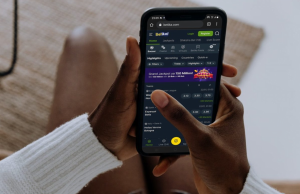Copyright: Registering Your Music, Photographs and Other Works in Uganda
Copyright is a legal expression that describes the rights given to creators of literary and artistic works for the benefit of recognition, identification, and protection against redistribution and illegal use by other people. When you have a copyright, anyone seeking to use your work must seek your permission first.
In Uganda, the Copyright and Neighbouring Rights Regulations, 2010 governs copyright, and the government issues these exclusive rights to original authors or the creators through the Uganda Registration Services Bureau (URSB), a statutory body that also registers patents for protecting original inventions.
The copyright law in Uganda classifies ‘works’ as performing arts like music, scripts, lyrics, and recordings, visual arts such as architecture and sculptures, motion pictures like films and movies, photographs, and other digital content, for example, computer programs and expressive creations in blogs, books, and newspapers. What is the procedure for the Registration of Copyright?
How to get a copyright in Uganda
As a content creator, it is wise to get your work copyrighted to profit from its derivatives when it gets republished or used by consumers.
As stated earlier, URSB performs copyright registration in UG. Follow these steps to apply;
1. Download Form 1 – APPLICATION FOR REGISTRATION OF COPYRIGHT OR NEIGHBOURING RIGHTS
2. In the first three sections of the application form, give the title, description, and name of the creator of the work you want to copyright
3. In part four, provide your contact information; email, postal address, and phone number
4. State the crucial dates in the creation of the work, that is, the date of creation and publication
5. Complete the form with other relevant information and put your sign at the signature line together with the date of application
6. When the form is duly filled, pay the Ush50,000 copyright application fee to URSB and get the receipt
7. Combine the filled Form 1, the receipt of payment, and copies or records representing the work for which is to be registered for copyright for purposes of verification and send it to;
The Registrar of Copyright,
Uganda Registration Services Bureau,
PO Box 6848,
Kampala.
When the URSB Copyright Registrar receives your application and is satisfied that all the requirements have been met, a notice of application will be published in the Uganda Gazette for general public information so that anyone with an objection against the submitted work can file a complaint.
If no issue arises regarding your copyright application after sixty days from the date of publication in the Gazette, the Copyright Registrar will list you in the URSB database as the rightful owner of the work, and you will be given a certificate of registration as proof of registration.


















